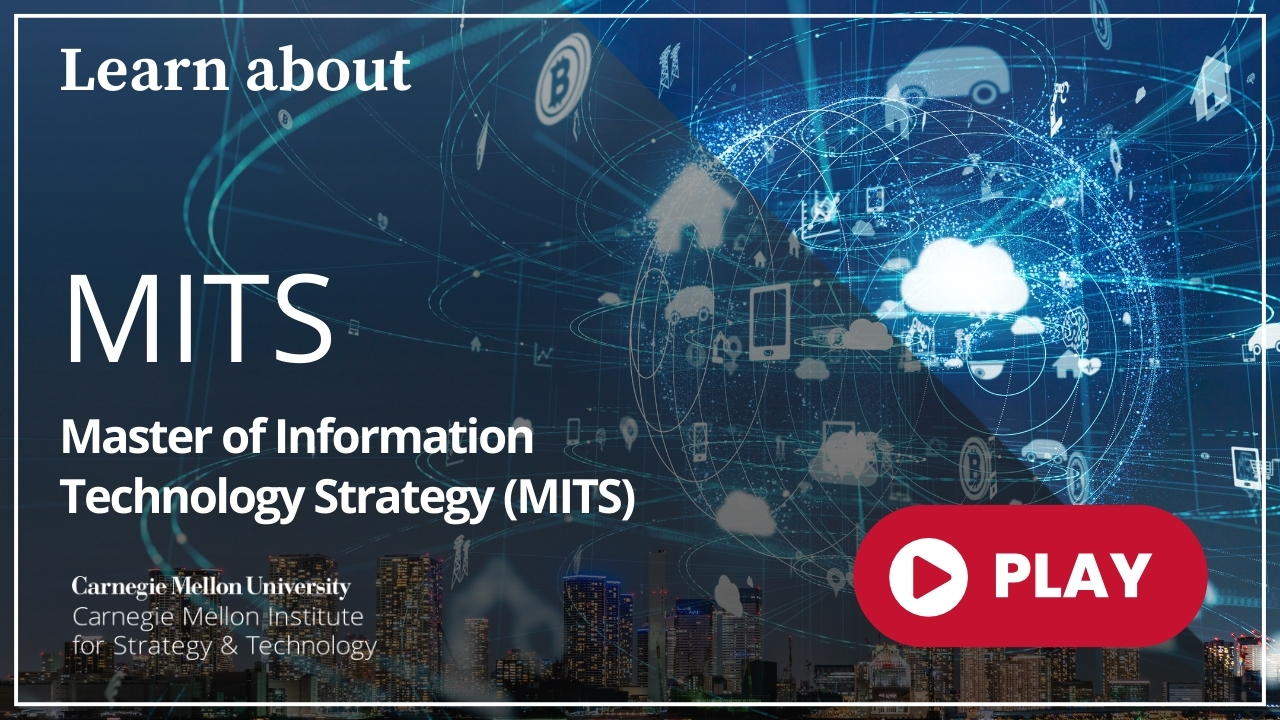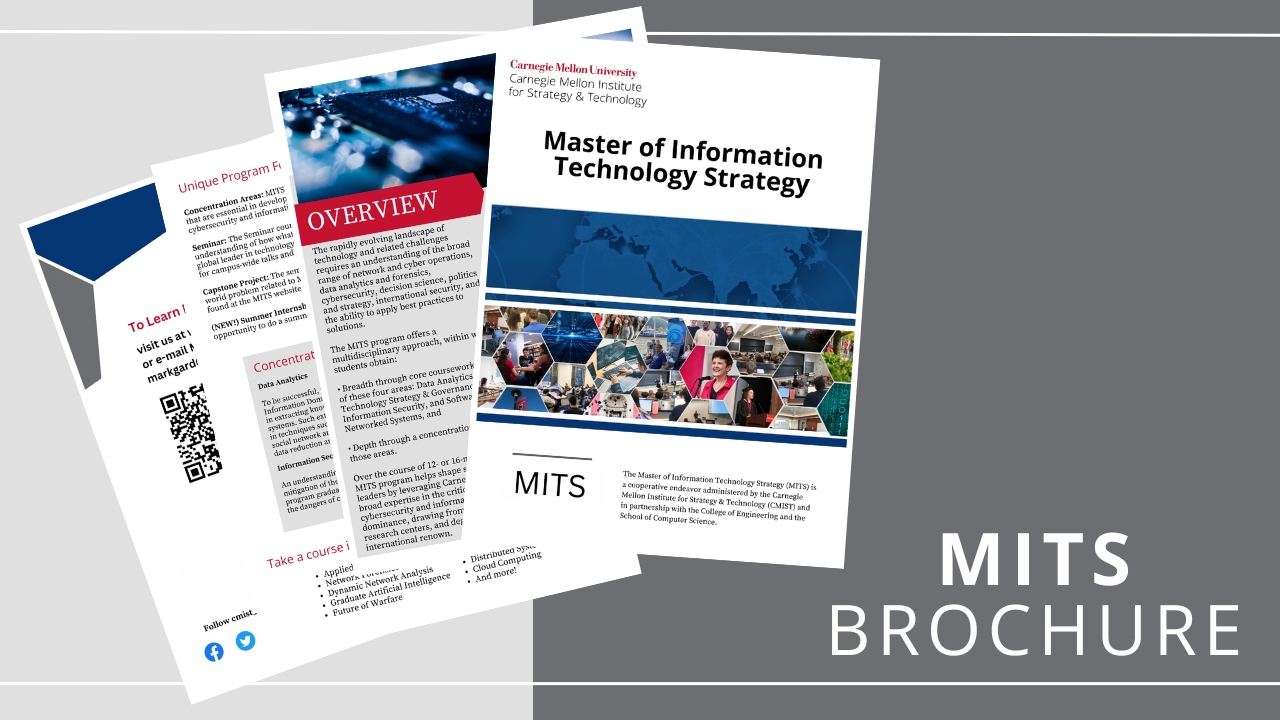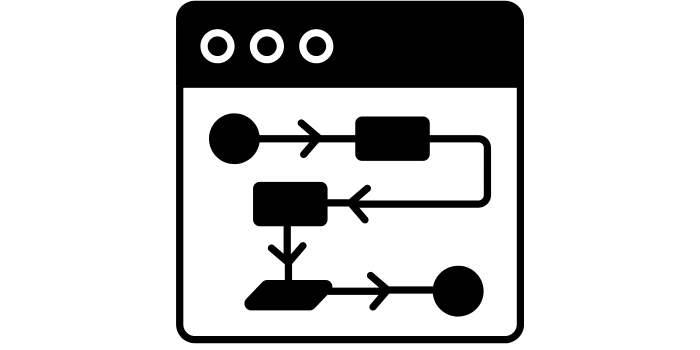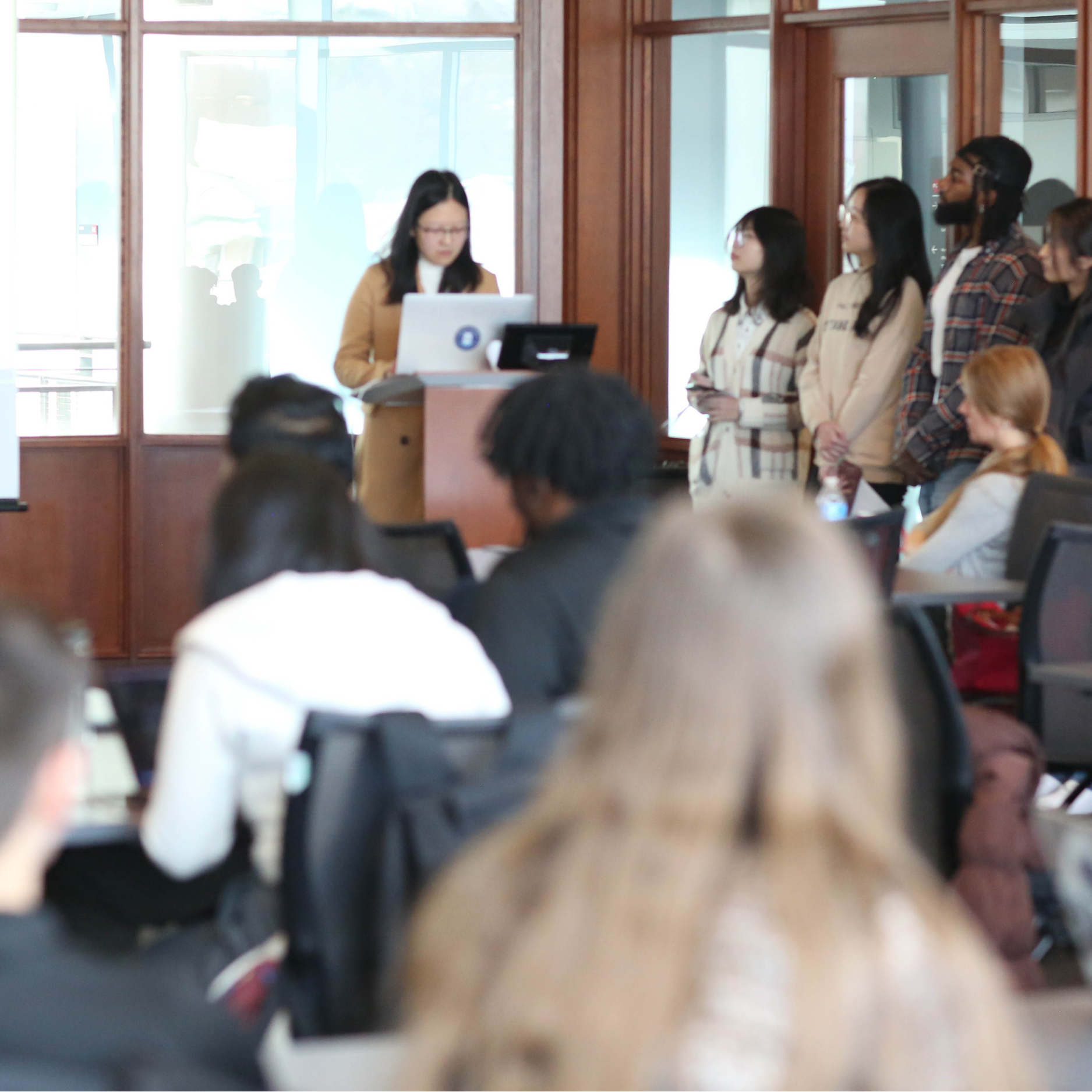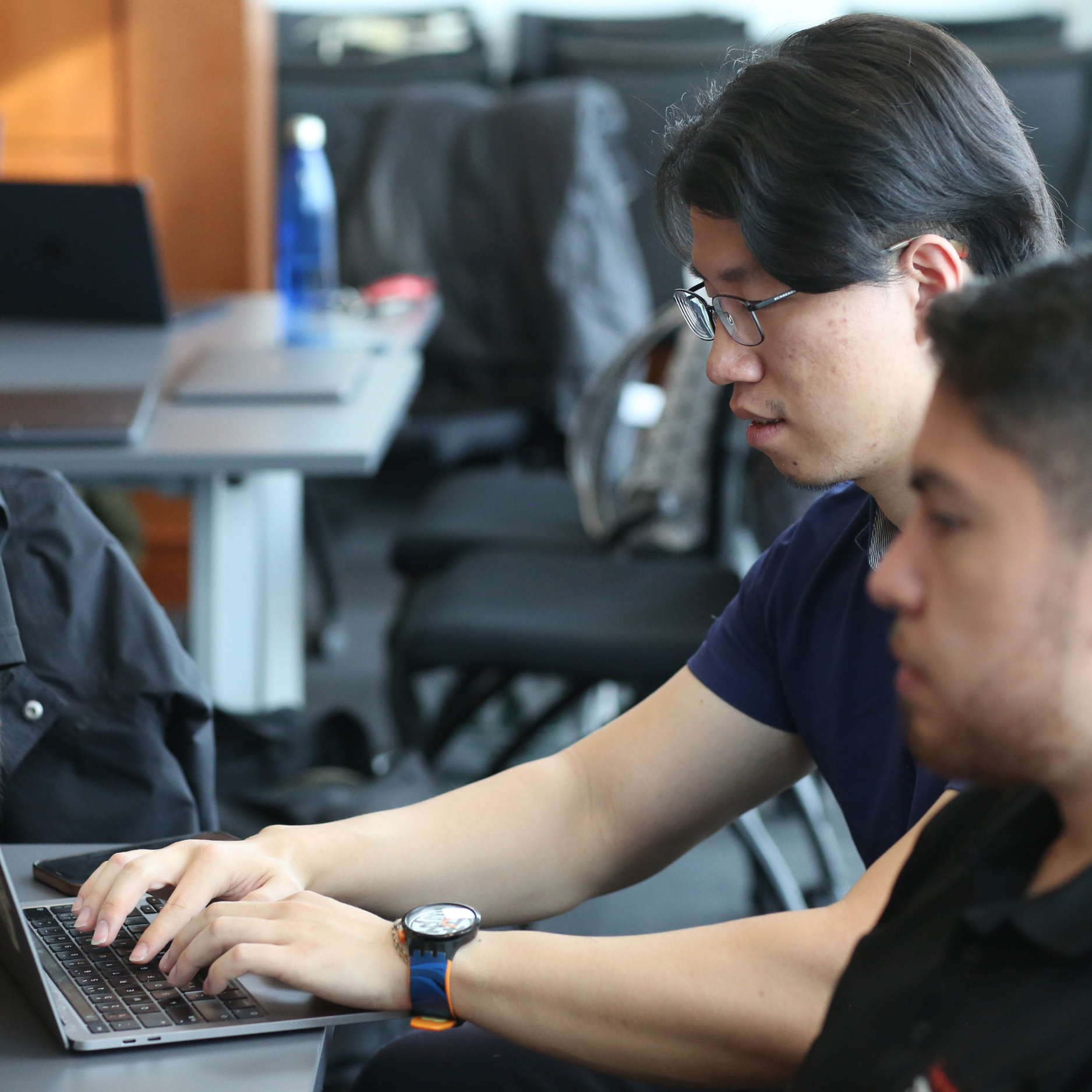Master of Information Technology Strategy (MITS)
The digital world moves fast. You need to be faster.
The Master of Information Technology Strategy is a cooperative endeavor administered by the Carnegie Mellon Institute for Strategy & Technology and in partnership with the College of Engineering and the School of Computer Science. This program creates leaders in the IT strategy space by allowing you to tailor your degree to an area of interest and teaching you how the puzzle pieces fit together—both of which make you valuable to employers. The average starting salary for MITS graduates is nearly $120,000.
The program's two tracks provide flexibility, but their brevity—the longer of the two takes sixteen months to complete—is well-suited for those who want to quickly advance their professional career. Both tracks involve a required Capstone Project, in which teams of four to six students partner with a company, research center, or organization to help them solve a strategic problem.
The program offers four areas of specialization: Data Analytics, Information Security, Technology Strategy & Governance, and Software and Networked Systems. No matter what you choose, you'll receive a blend of the other three, meaning you will leave Carnegie Mellon with a well-rounded skillset that makes you an attractive target on the job market. MITS is a STEM-designated degree according to the US Department of Homeland Security, meaning international students may apply for a longer period of Optional Practical Training.
Graduates go on to careers as data scientists, software engineers, military cyber operations officers, artificial intelligence and machine learning engineers, and business technology analysts for companies such as Oracle, Microsoft, Barclays, Deloitte, Apple, Google, DoorDash, and Visa.
Multidisciplinary Education
The MITS program provides a multidisciplinary education that prepares students to define and conceptualize:
- the emerging environment of threats caused by cyber operations
- opportunities for enhanced information analysis and exploitation
- development and management of innovative information technology systems
- technological governance strategies
- innovative efficiencies for technical solution implementation
- decision-making challenges associated with the above
Admissions
MITS Admission Requirements:
Strong candidates for the MITS program must demonstrate academic excellence and preparedness for the rigors of the program. Applicants are expected to have taken at least one introductory course in machine learning and analysis of data. Minimum qualifications are evaluated through previously completed coursework, demonstrated ability from completed projects, or equivalent work experience in the following areas:
Programming skills
An ideal candidate can demonstrate proficiency in programming in at least one of the following languages: Python, C, C++, or Java.
Algorithmic and Data Structure Skills
An ideal candidate can demonstrate a deep understanding of algorithms and data structures in order to design, implement, analyze, and optimize procedures and methods used to process and organize data.
Analytical SKILLS
An ideal candidate can demonstrate analytical ability, including topics such as probability, statistics, research methods, and economics.
COLLABORATION SKILLS
An ideal candidate can work effectively with others in leadership, cooperative, or subordinate roles.
MITS Application Materials
Annual Application Deadline: Applications open October 15. Complete and submit the application form by January 15 (Open application and select Dietrich College of Humanities and Social Sciences. Then select 2026 CMIST Applications)
Application Fee: $75. Please contact Mark Gardner if you would like to request a need-based application fee waiver.
Resume/Curriculum Vitae: A current outline of your education, research experience, internship experience, publications, scholarships awarded, prizes and honors received, society memberships, and extracurricular activities in PDF format.
Statement of Purpose (500-1000 words): State your purpose in undertaking graduate study in information technology strategy. Include your academic objectives, research interests, and career goals. Also discuss your related qualifications, including collegiate, professional, and community activities, and any other substantial accomplishments not already mentioned on the application, or résumé/curriculum vita.
Academic Transcripts
- We require a minimum 3.0 GPA represented in your undergraduate work. Please explain any gaps in your study, course fails, or retakes in the optional essay.
- International transcripts: If your undergraduate degree is from an institution that is located outside of the United States, you must use an academic credential verification service to obtain a course-by-course report. The academic credential verification service can then send this course-by-course report directly to CMIST electronically.
- Please do not mail/email your transcript to CMIST. We will only accept transcripts that we receive directly from an academic credential verification service. We will accept evaluations from any NACES member. We recommend using SpanTran or WES; we have previously coordinated with them. Please select to send your evaluations to the Carnegie Mellon Institute for Strategy & Technology or direct electronic delivery to: CMIST-admissions@andrew.cmu.edu.
- Please note: Course-by-course reports must include a US equivalent GPA on a 4.0 scale.
Letters of Recommendation: You are required to have two recommendation forms submitted on your behalf. Recommendations should be provided by employers, supervisors, professors, or others who are able to comment on your professional and educational goals and potential. At least one of your recommenders should be a professor who can attest to your academic abilities. The other should know you in a professional setting (full-time employment, internship, part-time employment, non-academic extracurricular activity, etc.). You may opt to have up to three (3) recommendations submitted in support of your application. Please let your recommenders know in advance that they may upload an electronic document or scanned copy of a paper-based recommendation using the online system rather than using the provided text box response fields, but that they must upload their recommendation via the online system.
English Language Proficiency: Language test scores from TOEFL, IELTS, or DuoLingo are required if your native language is not English. The only exceptions are for students who have worked or studied for five or more years in Australia, Botswana, Canada, Eswatini (formerly Swaziland), Ghana, Ireland, Kenya, Lesotho, Malawi, Namibia, New Zealand, Nigeria, South Africa, Tanzania, Uganda, United Kingdom, United States, and/or Zambia.
Your scores must be submitted directly to Carnegie Mellon University—Carnegie Mellon Institute for Strategy & Technology (TOEFL institution code C583). We verify all exam scores electronically after they are reported to us by the testing service. Please do not have paper test scores sent to us by mail. If you completed either the TOEFL or IELTS more than two years ago, you MUST take one of the tests again. The testing agency will not verify scores that are more than two years old.
We strongly recommend you include a video essay in your application. An interview also may be requested before final admission decisions can be made.
Writing Sample (Optional):
Include an academic writing sample (no less than 4 double-spaced pages with a references page) that demonstrates your comfortability with incorporating and citing scholarly research as evidence for an academic argument. The sample can be something you’ve written for a college class, conference presentation, or other academic purpose in the past. It should be composed in English (not translated into English) to also demonstrate English-language writing proficiency. The topic of the sample does not need to be relevant to the MITS curriculum; it can be a writing sample from any discipline or field as long as you have performed and cited scholarly research.
This element is required for any applicant who wishes to be considered for the CMIST Director’s Fellowship financial award.
Video Essay (Optional): You will be given the option in your application to provide a link to a video essay. Video essays are optional but strongly recommended, especially individuals unable to visit campus prior to the application deadline or those who are non-native English speakers. Use the video essay to give us more insight into who you are, your interests, and what you will bring to the program; for example, your interest or experience in a particular concentration, or some courses in the curriculum that you are particularly excited for. Please do not read your statement of purpose. The video and audio must be of you, the applicant (not a proxy).
GRE Test Scores (Optional): Applicants may choose to have their GRE test scores sent to Carnegie Mellon University (institutional code: 2074) to be considered with other required application materials. Providing GRE test scores is completely optional; an applicant who does not provide GRE test scores will receive the same consideration of any other applicant.
Interview: Virtual interviews may be requested by CMIST for applicants in the final round of selection.
Veterans: CMU welcomes applications from veterans and those currently serving in the US Military. The university Registrar's Office provides services to veterans and their dependents who are eligible for Veterans Education Benefits under the Montgomery GI Bill, Post-9/11 GI Bill.
In addition, CMU participates in the Yellow Ribbon Program for those who are 100 percent eligible for benefits under the Post-9/11 GI Bill. In order to use Veterans Education Benefits, you must be an admitted Carnegie Mellon student (graduate or undergraduate). Veterans Affairs determines the amount of benefits a student can receive; therefore, we cannot estimate benefit amounts. Please contact the VA at 1-888-442-4551 to find out the amount you are eligible to receive.
All information reported on your application is subject to verification. CMIST utilizes several methods to identify plagiarized and falsified content in uploaded documents. Submission of false or plagiarized material as part of the application for admission may result in automatic denial of admission to any degree program.
Curriculum
The MITS program is a full-time, on-campus program. There are two curricular options:
MITS Standard Program (12 months, 126 units total)
MITS Applied Study (16 months, 129 units total)
All Core and Concentration requirements must be completed in the first two semesters of the program. Core courses may be used to fulfill concentration requirements. Due to changing class availability, alternatives to core and concentration areas will be considered on a case-by-case basis.
Free electives must be approved and in the MITS genre.
Core Courses (48 units)
Core courses establish the necessary background and a common competence level in each of the four thematic areas. Students must take at least one core course option from each of the Concentration areas below for a total of 48 units minimum.
Data Analytics
-
- Option 1: 10-601 Introduction to Machine Learning (fall/spring)
- Option 2: 17-685/17-801 Dynamic Network Analysis (spring)
- Option 3: 05-834/11-663 Applied Machine Learning (fall/spring)
- Option 4: 17-634 Applied Machine Learning (spring 1st half mini) AND 17-644 Applied Deep Learning (spring 2nd half mini)
For students who need to brush up on foundational mathematical or computational skills, 11-637 (summer/fall) OR 10-606 AND 10-607 (summer/fall 1st and 2nd half minis) are recommended prior to DA core course options 1-3 but not required.
Note: Students in the Data Analytics Concentration may not take Options 2 or 3 to fulfill their requirement; Students may not take options 3 or 4 AND 10-601/701.
Technology Strategy & Governance
- Option 1: 84-605 The Future of Warfare (fall)
- Option 2: 84-674 An Introduction to Technology and War (fall)
- Option 3: 84-687 Remote Systems and the Cyber Domain in Conflict (spring)
- Option 4: 84-650 A Strategist's Introduction to Artificial Intelligence
- Option 5: 84-663 Click. Hack. Rule: Understanding the Power and Peril of Cyber Conflict
Information Security
- Option 1: 17-631 Information Security, Privacy, and Policy (fall)
- Note: Recommended for students with little to no prior exposure to IS
- Option 2: 14-741 Introduction to Information Security (fall/spring)
- Option 3: 19-734/05-836 Usable Privacy and Security (spring)
- Option 4: 95-748 Software and Security (fall 2nd-half mini) (prerequisite: basic programming skills) AND 84-683 National Cyber Policy & Strategy (spring 2nd half-mini)
(Note: Students may not take any of the above options as concentration or elective courses)
Software and Networked Systems
- Option 1: 15-640 Distributed Systems (fall/spring, prerequisite 15-513)
- Option 2: 15-641 Networking and the Internet (fall, prerequisite 15-513)
- Option 3: 17-635 Software Architecture AND 17-632 Software Project Mgmt (spring 1st half minis)
- Option 4: 17-636 DevOps: Engineering for Secure Development and Deployment (fall/spring)
Concentrations (24 units)
The area of concentration provides an opportunity to build upon core course knowledge and to develop expertise in a specific area. Students choose a focus area (24 units) from the following concentration areas:
- Data Analytics
- Technology Strategy & Governance
- Information Security
- Software and Networked Systems
Students can further explore their area of concentration, or pursue topics outside of it, through free electives.
Students may choose courses for their area of concentration and free electives from among the following:
Concentration Courses (24 units)
Data Analytics (DA)
This concentration focuses on the mastery of techniques such as: machine learning, social network analysis, large-scale data reduction and filtering and the application of these techniques to the development of strategies to advance the organizational mission.
- 05-619 Data Visualization (fall, prerequisite 15-513)
- 05-820 Social Web (fall/spring)
- 05-839 Interactive Data Science (fall/spring)
- 10-605 Machine Learning Large Data Sets (fall/spring, prerequisite 10-601)
- 10-606 Mathematical Foundations for Machine Learning (fall 1st half mini)
- 10-607 Computational Foundations for Machine Learning (fall 2nd half mini)
- 10-623 Generative AI (fall/spring, prerequisite 10-601)
- 10-703 Deep Reinforcement Learning and Control (fall, prerequisite 10-601)
- 10-707 Topics in Deep Learning (spring, prerequisite 10-601)
- 10-708 Probabilistic Graphics Models (fall/spring, prerequisite 10-601)
- 10-714 Deep Learning Systems: Algorithms & Implementation (fall, prerequisite 15-513 AND 10-601)
- 11-611 Natural Language Processing (fall/spring)
- 11-642 Search Engines (fall/spring)
- 11-667 Large Language Models Methods and Applications (fall/spring, prerequisite 10-601)
- 11-681 AI Venture Studio (spring)
- 11-685 Introduction to Deep Learning (fall/spring)
- 11-755 Machine Learning for Signal Processing (fall)
- 11-777 Multimodal Machine Learning (fall/spring, prerequisite 10-601)
- 11-868 Large Language Model Systems (spring, prerequisite 11-685)
- 14-757 Intro to Machine Learning with Adversaries in Mind (fall/spring)
- 15-650 Algorithms & Advanced Data Structures (fall/spring)
- 15-673 Visual Computing Systems (fall, prerequisite 15-513)
- 15-780 Graduate Artificial Intelligence (fall/spring)
- 15-783 Trustworthy AI: Theory and Practice (fall, prerequisite 10-601)
- 16-735 Ethics and Robotics (spring)
- 16-824 Visual Learning and Recognition (fall/spring)
- 16-867 Human Robot Interaction (fall)
- 17-619 Product Management Essentials I (fall/spring 1st half mini) AND 17-629 Product Management Essentials II (fall/spring 2nd half mini)
- 17-634 Applied Machine Learning (spring 1st half mini)
- 17-644 Applied Deep Learning (spring 2nd half mini)
- 17-645/17-745/11-695 Machine Learning in Production/AI Engineering (fall/spring)
Technology Strategy & Governance (TSG)
This concentration focuses on developing an understanding of the impact of emerging technologies on international and national security, strategic decision-making, governance, and policy development
- 84-619 Civil-Military Relations (spring/summer)
- 84-622 Nonviolent Conflict and Revolution (spring)
- 84-624 Future of Democracy (spring)
- 84-625 Contemporary American Foreign Policy (spring)
- 84-628 Military Strategy and Doctrine (fall)
- 84-649 Digital Diplomacy: Cybersecurity Challenges and Global Governance (spring)
- 84-656 Applied Political Data Analytics (spring)
- 84-662 Diplomacy and Statecraft (fall)
- 84-663 Click. Hack. Rule: Understanding the Power and Peril of Cyber Conflict (fall)
- 84-665 The Politics of Fake News and Misinformation (spring)
- 84-668 Technology Ethics (spring)
- 84-669 Decision Science for International Relations (fall)
- 84-670 Nuclear Security & Arms Control (fall)
- 84-671 International Governance of Artificial Intelligence (fall)
- 84-672 Space and National Security (spring)
- 84-673 International Law (fall)
- 84-675 Geopolitics of Innovation (fall)
- 84-680 US Grand Strategy (fall)
- 84-683 National Cyber Policy and Strategy (spring 2nd half mini)
- 84-689 Terrorism and Insurgency (spring)
- 84-690 Social Media, Technology, and Conflict (spring)
- 84-720 Advanced International Security (spring)
- 16-735 Ethics and Robotics (spring)
- 17-684 Ethics and Policy Issues in Computing (fall/spring)
- 19-701 Introduction to the Theory & Practice of Policy (fall)
- 19-711 Science and Innovation Leadership for the 21st Century: Firms, Nations, and Tech (spring)
- 19-713 Policies of Wireless Systems (fall)
- 19-722 Telecommunications Technology and Policy for the Internet Age (spring)
Information Security (IS)
This concentration focuses on developing an understanding of cyber-attacks and equipping students to address the threats and consequences of cyber-attacks through sound information security strategies and policies.
- 14-735 Secure coding (fall, prerequisite 15-513)
- 14-761 Applied Information Assurance (fall/spring)
- 14-795 AI Applications in Information Security (fall/spring, prerequisite 10-601)
- 14-817 Cyber Risk Modeling (fall/spring)
- 14-819 Introduction to Software Reverse-Engineering (spring, prerequisite 15-513)
- 14-822 Host Based Forensics (spring)
- 14-823 Network Forensics (fall)
- 14-829 Mobile and IoT Security (fall)
- 17-735/19-605 Engineering Privacy in Software (spring)
- 18-636 Browser Security (fall, prerequisite 14-741)
- 18-731 Network Security (fall/spring, prerequisite 14-741 or 18-730)
- 18-732 Secure Software Systems (spring, prerequisite 14-741 and 15-513)
- 18-733 Applied Cryptography (spring, prerequisite 14-741 or 18-730)
- 18-739 Special Topics in Security (fall)
- 18-734 Foundation of Privacy (fall)
- 95-746 Cloud Security (fall 1st half mini / fall 2nd half mini)
- 95-752 Introduction to Information Security Management (fall/spring)
- 95-810 Blockchain Fundamentals (fall 1st half mini/summer)
- 95-884 Network Defenses (fall 1st half mini/spring 1st half mini/summer 1st half mini)
Software and Networked Systems (SNS)
This concentration focuses on developing an understanding of systems and software comprising organizational information infrastructure assets to better manage their design, development, and procurement of systems and service, through sound strategies and policies.
- 05-631 Software Structures for User Interfaces (fall, prerequisite 15-513)
- 11-642 Search Engines (fall/spring)
- 11-667 Large Language Models Methods and Applications (fall/spring, prerequisite 10-601)
- 11-695 AI Engineering (spring, prerequisite 10-601)
- 14-740 Fundamentals of Telecommunication Networks (fall/spring)
- 14-829 Mobile and IoT Security (fall)
- 14-848 Cloud Infrastructure and Services (fall/spring)
- 15-618 Parallel Computer Architecture and Programming (fall/spring, prerequisite 15-513)
- 15-619 Cloud Computing (fall/spring)
- 15-642 Machine Learning Systems (spring, prerequisite 15-513)
- 15-645 Database Systems (fall/spring, prerequisite 15-513)
- 15-719/18-709 Advanced Cloud Computing (spring, prerequisite 15-513)
- 15-746 Storage Systems (fall, prerequisite 15-513)
- 16-720 Computer Vision (fall/spring)
- 16-722 Sensing and Sensors (fall)
- 16-761 Mobile Robots (spring)
- 16-782 Planning and Decision-making in Robotics (fall)
- 16-867 Human Robot Interaction (fall)
- 17-611 Statistics for Decision Making (fall 1st half mini/summer 2nd half mini) AND 17-626 Requirements for Information Systems (fall 2nd half mini) OR 17-627 Requirements for Embedded Systems (fall 2nd half mini)
- 17-614 Formal Methods (fall 1st half mini) AND 17-622 Agile Methods (fall 2ndhalf mini/summer 1st half mini) OR 17-624 Advanced Formal Methods (fall 2ndhalf mini)
- 17-623 Quality Assurance (fall 2nd half mini) AND 17-643 Quality Management (spring 2nd half mini)
- 17-637 Web Application Development (fall/spring, prerequisite 15-513)
- 17-642 Software Management Theory (spring 2nd half mini) AND 17-643 Quality Management (spring 2nd half mini, prerequisite 17-623)
- 17-645/17-745/11-695 Machine Learning in Production (fall/spring) /AI Engineering (spring, prerequisite 10-600)
- 17-648 Sensor Based Systems (spring 2nd half mini)
- 17-681 Practical Python for Developers (fall 1st half mini/spring 1st half mini) AND 17-683 Practical Data Structures for Developers (fall 2nd half mini/spring 2nd half mini)
- 18-642 Embedded System Software Engineering (fall; remote option only)
- 18-648 Embedded Real-Time Systems (fall, prerequisite 15-513)
- 18-756 Packet Switching & Computer Networks (fall)
- 18-843 Mobile and Pervasive Computing (fall)
Elective (12 Units)
Elective (12 units)
An elective is a course taken in addition to the core, capstone project, pre-requisite and required courses, is in an area of interest to the student, and is applicable to their degree. The most common choice is to select outside of the student’s declared concentration, from the pre-approved list of concentration courses. MITS students should plan to select technical courses, although some exceptions to this rule will be considered.
All MITS students are required to take a minimum of 12 units of elective coursework. Units associated with elective courses vary. All students are advised to discuss their choice of electives with the graduate program manager and receive approval before enrolling. If a student wishes to take an elective outside of the pre-approved courses, only those electives that have been approved by the academic adviser will be accepted towards degree completion requirements.
Policy Seminar (6 units)
Policy Seminar: 84-791 and 84-792
Each semester, the Carnegie Mellon Institute for Strategy and Technology (CMIST) hosts several lectures and speaker series that address topics spanning the intersection of security and technology, international relations, political science, and more. We bring senior leaders to the CMU community who are experts in these fields and have made remarkable contributions to these and other fields. CMIST graduate students will enroll in the three-unit Policy Seminar each semester and be expected to participate in and reflect on their interactions throughout the CMIST-hosted lectures and roundtable discussions. The Policy Seminar courses are only open to CMIST graduate students.
Fulfill your seminar requirements with these events:
- CMIST Events, including Scientists & Strategists and Lawfully Speaking Series
- Center for Behavioral and Decision Research (CBDR)
- Engineering and Public Policy (EPP) Seminars
- Center for Informed Democracy & Social-cybersecurity (IDeaS)
- CyLab Events and Seminars
- Electrical and Computer Engineering (ECE) Seminar Series
- Heinz Speaker Series
- Institute for Software Research Departmental Seminars
- Machine Learning Department Events
- Parallel Data Lab (PDL) Events
- Robotics Institute Events
- University Event Calendar
- University Lecture Series
Summer Internship for MITS-Applied Study (3 units)
MITS—Applied Study students are required to enroll in 3 units of the Pass/No Pass internship course during the summer semester of their internship. To count towards the degree students must work with their internship supervisor to submit expectations and outcomes, and the students shall submit a final report at the conclusion of the internship.
84-705: CMIST Graduate Internship (3 units)
MITS Curricular Options
Standard
MITS Standard Program (12 months, 126 units total).
All core and concentration courses must be completed by the end of the spring semester. Core courses can be used for concentration course requirements unless otherwise noted.
| Fall | Spring | Summer |
| Information Security Core Course (12 units) | Software and Networked Systems Core Course (12 units) |
MITS Project (36 units) |
|
Data Analytics Core Course (12 units) |
Concentration Course (12 units) | |
| Technology Strategy & Governance Core Course (12 units) | Concentration Course (12 units) | |
| Policy Seminar I (3 units) | Policy Seminar II (3 units) |
Optional Approved elective (6-12 units) |
| 15-513/11-637 elective or Concentration Course (12 units) | Optional Approved elective (12 units) |
Applied Study
MITS Applied Study (16 months, 129 units total).
All core and concentration courses must be completed by the end of the spring semester. Core courses can be used for concentration course requirements unless otherwise noted.
| Fall | Spring | Summer | Fall |
|
Information Security Core Course (12 units) |
Software and Networked Systems Core Course (12 units) |
Required internship (3 units) |
MITS Project (36 units) |
| Data Analytics Core Course (12 units) | Concentration Course (12 units) | ||
| Technology Strategy & Governance Core Course (12 units) | Concentration Course (12 units) | ||
| Policy Seminar I (3 units) | Policy Seminar II (3 units) | Optional Approved Elective (6-12 units) | |
| 15-513/11-637 elective or Concentration Course (12 units) |
Optional Approved Elective (12 units) |

Study with the experts who are changing the game in their fields
When you take our Dynamic Network Analysis course, you'll be taking it with Dr. Kathleen Carley. Dr. Carley specializes in network science, agent-based modeling, text-mining, and organizational and social theory framework. In her work, she examines how cognitive, social, and institutional factors come together to impact individual, organizational, and societal outcomes. She uses her expertise to address policy issues, including counter-terrorism, human and narcotic trafficking, cyber and nuclear threats, organizational resilience and design, natural disaster preparedness, cyber threat in social media, and leadership.
Capstone Project
The MITS Capstone Project provides students with an opportunity to apply concepts learned in the program’s core and concentration area courses. Projects may be sponsored by industry, academia, or government organizations. While projects may vary in domain and concentration area, they provide MITS students the opportunity to learn by doing.
Jump to:
Past Projects
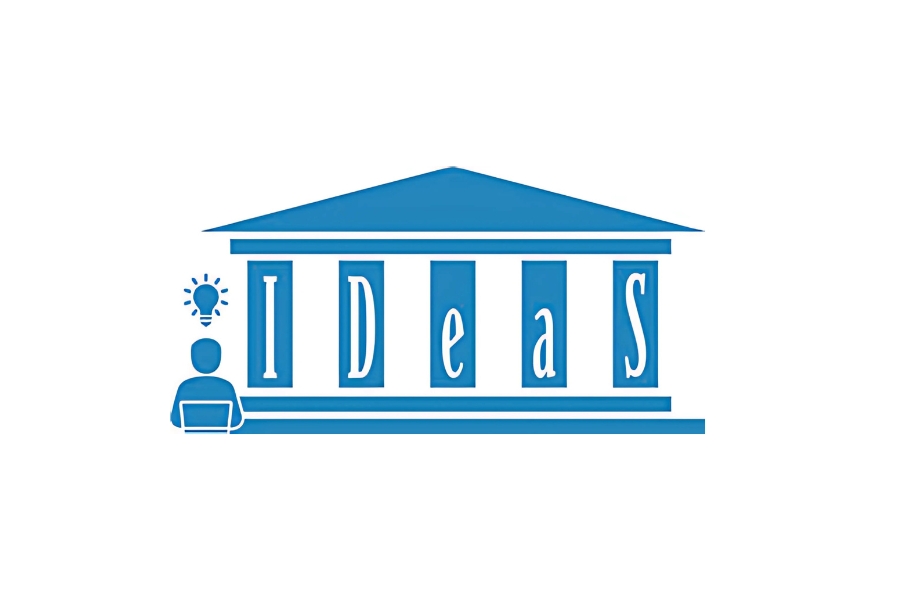
BEND Framework: Understanding Emotional Imagery Online
Information operations from corporate branding and marketing to political influence campaigns require generating and interpreting messages. Often these messages are text and increasingly involve audio or visual information such as sound snippets, images, and videos. Currently there exist sound solutions for interpreting text-based messages, such as the BEND framework, as well as solutions for interpreting emoji and emoticons. However, audio and image solutions lag behind.
In this project, students have extracted emotions from multimodal information online to understand public opinion and sentiment toward political figures, policies, or events across different platforms. They were successfully able to tailor communication strategies for political campaigns across text, images, and audio for better resonance, as well as targeting detection of misinformation in political campaigns on social media platforms geared toward younger audiences.
Team Members: Meng Zhou, Errol Brown, Yue Jiang, Zengyongxi Deng, Devashish Sanjay Ubale, and Henry George Xu
Sponsoring Company: IDeaS Center
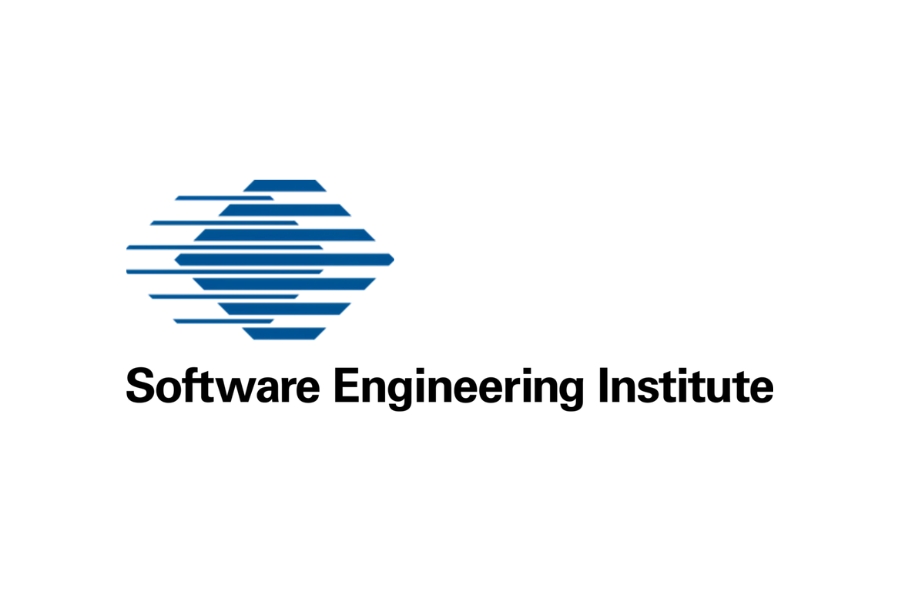
Security Chaos Engineering
Large-scale distributed systems have unpredictable and complex outcomes that are costly when incidents occur. Our systems are becoming more and more distributed, ephemeral, and immutable in how they function in today’s ever-evolving landscape of contemporary engineering practices. Not only are we becoming more complex but the rate of velocity in which our systems are interacting and evolving is making the work more challenging for us humans. In this shifted paradigm, it is becoming problematic to comprehend the operational state, health, and safety of our systems.
To address this, the MITS student team intentionally introduced chaos to test system resilience and stress response. In doing so, the team gained insights into best practices for security configurations, identified security vulnerabilities, and acknowledged the imperative for ongoing improvements in AWS security practices.
Team Members: Caiyu Wang, Yiliu Xu, Jiangni Ren, Emma Cai, Yimin Ding, and Jelani Dula
Sponsoring Company: Software Engineering Institute
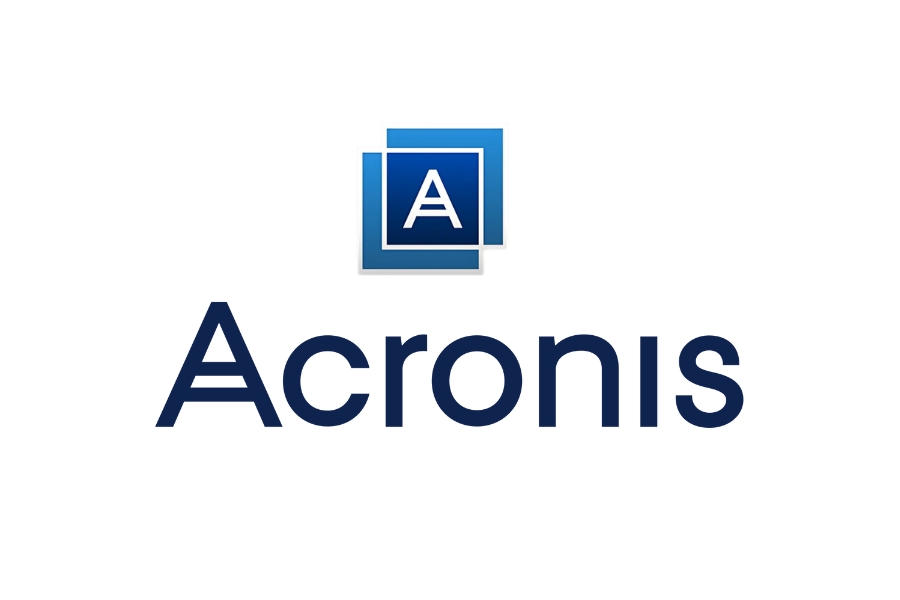
Security Assessment for IoT Devices
The rise in the Internet of Things (IoT) usage broadens the landscape for potential cyber threats. Security methods to ensure privacy have not kept up with the increase in IoT devices in the marketplace, including those used in customers’ home environments.
To address this challenge, MITS team members conducted a risk assessment and identified the largest security threats to IoT devices commonly found in office spaces and smart homes. They then analyzed four security programs in order to recommend the best alternative for those IoT devices.
Team members: Peilin Miao, Gengyuan Zhang, Jingyuan Wang, Yen-Ju Pon, and Yijia Yuan
Sponsoring Company: Acronis
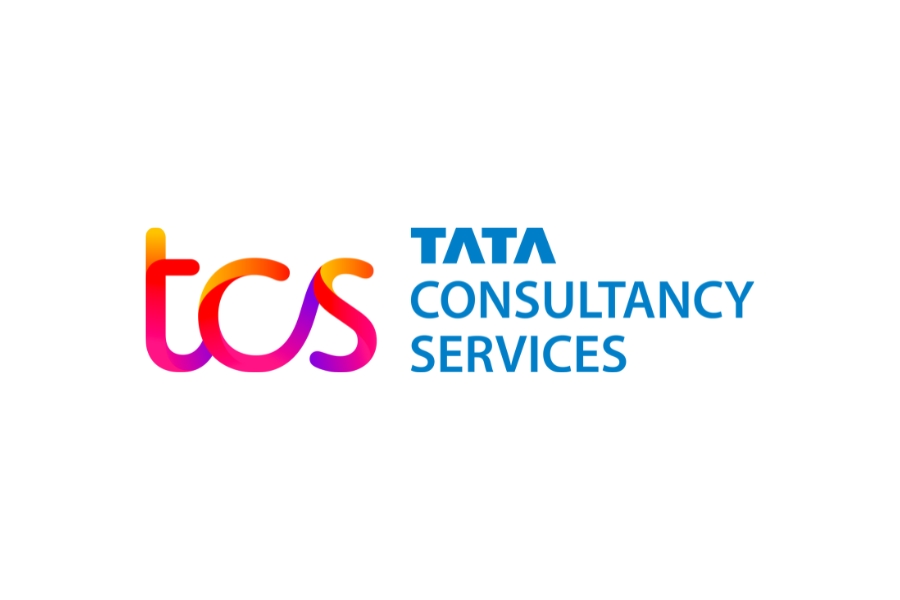
Object Detection for Autonomous Vehicles
Autonomous driving vehicles rely heavily on predefined labels of objects to assist in their capacity to travel safely. However, these labels are incomplete because traditional object detection models do not account for objects that are not recognized.
To address this gap, MITS team members developed a system that detects all objects, known and unknown, from images and videos captured by autonomous driving vehicles. They reviewed these images, verified each known object, and labeled all unrecognized objects. The finished system filtered out known objects and noise and clustered unknown objects together, thereby reducing the need to manually label each object.
Team members: Manish Agnihotri, Joshua Kim, Yumeng Li, Yinghuan Zhang
Sponsoring Company: Tata Consultancy Services
Sponsor Information
Projects should focus on MITS concentration topic areas and provide an opportunity for students to apply program-specific content and/or practices to address some strategic or policy concern, issue, or challenge. Projects may cut across one or more concentration areas. This provides opportunities for students to work in teams with diverse interests and expertise.
Concentration Areas & Project Topic Guides:
DATA ANALYTICS
This concentration focuses on the mastery of techniques such as: machine learning, social network analysis, large-scale data reduction and filtering, and the application of these techniques to the development of strategies to advance the organizational mission.
Data Analytics projects should broadly focus on:
- Collection of data in some organizational context.
- Analysis of data and identification of trends in the data.
- Strategic analysis utilizing data and trends to explore alternative strategies, identify future strategic direction, evaluate the fitness of existing strategies, and so forth.
TECHNOLOGY STRATEGY & GOVERNANCE
This concentration focuses on developing an understanding of the impact of emerging technologies on international and national security, strategic decision-making, governance, and policy development.
Technology Strategy & Governance projects should broadly focus on:
- Analysis of micro/macro socio-political-organizational policies and strategies with the intent to understand the history, current circumstances, and consequences of existing policies and strategies.
- Determine and evaluate the future impact and socio-political-organizational consequences of existing or proposed policies and strategies.
- Proposing alternative policies and strategies and providing an analysis of their socio-political-organizational impact.
INFORMATION SECURITY
This concentration focuses on developing an understanding of cyber-attacks and equipping students to address the threats and consequences of cyber-attacks through sound information security strategies and policies.
Information Security projects should broadly focus on:
- Evaluation of security policies, practices, and technologies.
- Threat analysis of organizational application and data assets.
- Formulation of strategies to address current and emerging threats to data and application security within the organization/enterprise to include: proposing alternative strategies, strategic direction, evaluate the fitness of existing strategies and technology suites, and so forth.
SOFTWARE AND NETWORKED SYSTEMS
This concentration focuses on developing an understanding of systems and software comprising organizational information infrastructure assets to better manage their design, development, and procurement of systems and service, through sound strategies and policies.
Software and Networked Systems projects should broadly focus on:
- Current network systems and software technology trends and the various ecosystems prevalent today.
- Risks and challenges associated with managing, designing, developing, and procuring systems hardware, software, and infrastructures.
- The role systems and software have in the strategies utilized to support and advance an organization’s business goals and/or mission objectives.
Frequently Asked Questions (FAQs)
Q: What are the benefits of sponsoring a MITS Capstone project?
Q: What does it mean to “sponsor” a project?
A: Project sponsorships are an important culminating aspect of our professional master’s MITS program. When asked to sponsor a proposed project, an organization is invited to give a philanthropic gift in support of CMIST and the MITS scholarship fund. While this gift donation is not required to get a proposed project approved, it does go a long way toward helping sustain the exceptional academic experience of our graduate students.
For each approved project, our highly-trained students are tasked with exploring innovative technology solutions for a given strategic problem or set of problems that the organization has identified. Student groups work for 14 weeks to synthesize and test workable solutions for an organization’s specific needs. Some examples of projects might include helping to improve their efficiency, internal work-flow processes, cybersecurity responses, and overall use of technology by organizational stakeholders.
Q: What responsibilities come along with sponsoring a MITS capstone project?
Q: What happens to any IP created for the MITS capstone project?
Q: What kind of organizations are eligible to propose a project?
Tuition and Financial Aid
Tuition and fees are updated annually in the spring semester. Please visit the CMU Graduate Tuition website for more details.
Information on graduate financial aid is available through CMU Student Financial Services. Applications are accepted year-round, but the preferred deadline for financial aid applications is February 15.
CMIST Director’s Merit Fellowship
The MITS program offers Director’s Merit Fellowships based on undergraduate academic performance and demonstrated financial need. Director’s Merit Fellowship recipients may have additional part-time work study obligations such as being a Teaching Assistant (TA), Research Assistant (RA), or both for assigned CMIST faculty. Additional work-study opportunities will be negotiated on a case-by-case basis once a student officially accepts their offer of admission.
Only MITS applicants who submit a Writing Sample will be considered for the Director's Merit Fellowship. Please review the Writing Sample prompt above in the MITS Application section. There is no separate application needed to be considered for this financial award.
Funding for US Military and Veterans
MITS welcomes applications from veterans and those currently serving in the US Military. MITS offers a limited number of scholarships every year for graduates from select US military academies. In addition, the university Registrar's Office provides services to veterans and their dependents who are eligible for Veterans Education Benefits under the Montgomery GI Bill, Post-9/11 GI Bill.
CMU also participates in the Yellow Ribbon Program for those who are 100 percent eligible for benefits under the Post-9/11 GI Bill. In order to use Veterans Education Benefits, you must be an admitted Carnegie Mellon student (graduate or undergraduate). Veterans Affairs determines the amount of benefits a student can receive; therefore, we cannot estimate benefit amounts. Please contact the VA at 1-888-442-4551 to find out the amount you are eligible to receive.

